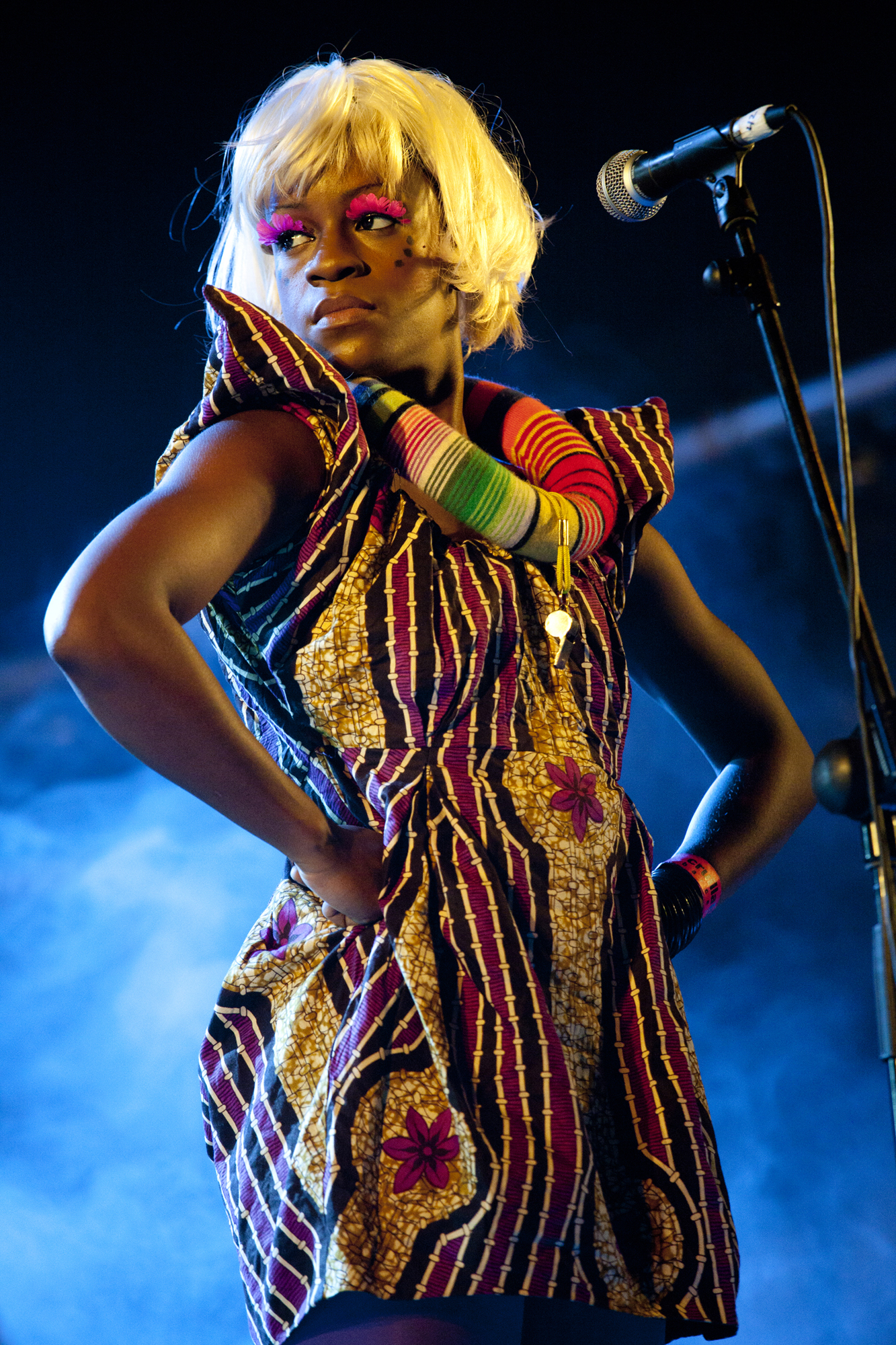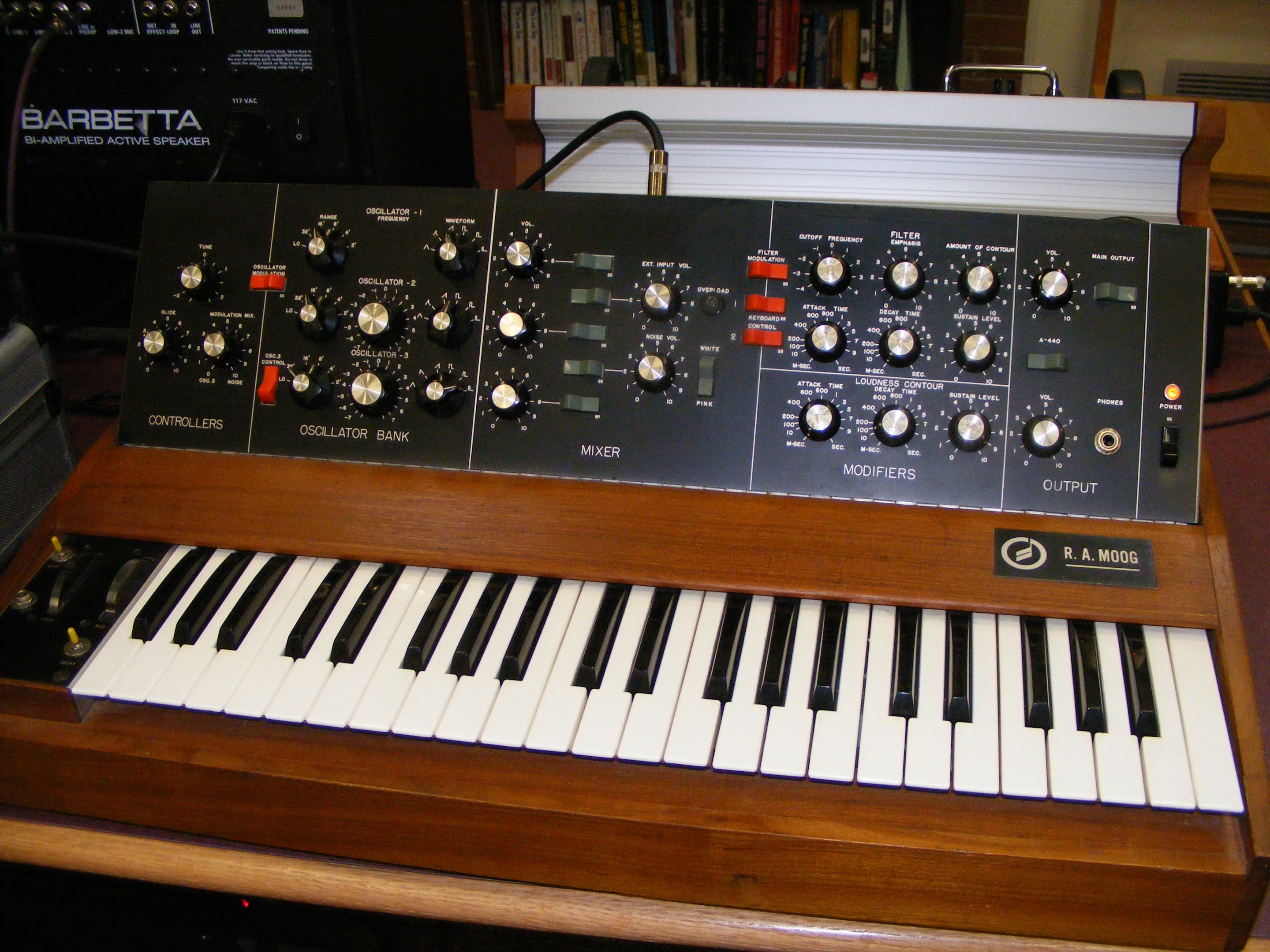|
She Drew The Gun
She Drew the Gun are a band from Wirral, England, fronted by singer/songwriter Louisa Roach. They won the Glastonbury Festival Emerging Talent competition in 2016. Their music is described as psych pop and is known for its often political lyrics. Background She Drew the Gun started as a solo project for Louisa Roach. Gradually she formed a four-piece live band and toured the UK supporting The Sundowners in early 2015, before signing with Skeleton Key Records. The 2016 incarnation of the band included drummer Sian Monaghan, guitarist Jack Turner and multi-instrumentalist Jenni Kickhefer. In 2016, the band along with numerous other celebrities, toured the UK to support Jeremy Corbyn's bid to become Prime Minister. In April 2016, She Drew the Gun was chosen from a long-list of 120 entries to the Glastonbury Festival Emerging Artists competition. After performing with the other seven finalists, they were named as winners with a prize of £5000 and a slot on one of Glastonbury F ... [...More Info...] [...Related Items...] OR: [Wikipedia] [Google] [Baidu] |
Wirral Peninsula
Wirral (; ), known locally as The Wirral, is a peninsula in North West England. The roughly rectangular peninsula is about long and wide and is bounded by the River Dee to the west (forming the boundary with Wales), the River Mersey to the east, and the Irish Sea to the north. Historically, the Wirral was wholly in Cheshire; in the Domesday Book, its border with the rest of the county was placed at "two arrow falls from Chester city walls". However, since the Local Government Act 1972, only the southern third has been in Cheshire, with almost all the rest lying in the Metropolitan Borough of Wirral, Merseyside. An area of saltmarsh to the south-west of the peninsula lies in the Welsh county of Flintshire. The most extensive urban development is on the eastern side of the peninsula. The Wirral contains both affluent and deprived areas, with affluent areas largely in the west, south and north of the peninsula, and deprived areas concentrated in the east, especially Bir ... [...More Info...] [...Related Items...] OR: [Wikipedia] [Google] [Baidu] |
Backing Vocalist
A backing vocalist is a singer who provides vocal harmony with the lead vocalist or other backing vocalists. A backing vocalist may also sing alone as a lead-in to the main vocalist's entry or to sing a counter-melody. Backing vocalists are used in a broad range of popular music, traditional music, and world music styles. Solo artists may employ professional backing vocalists in studio recording sessions as well as during concerts. In many rock and metal bands (e.g., the power trio), the musicians doing backing vocals also play instruments, such as guitar, electric bass, drums or keyboards. In Latin or Afro-Cuban groups, backing singers may play percussion instruments or shakers while singing. In some pop and hip hop groups and in musical theater, they may be required to perform dance routines while singing through headset microphones. Styles of background vocals vary according to the type of song and genre of music. In pop and country songs, backing vocalists may sing ha ... [...More Info...] [...Related Items...] OR: [Wikipedia] [Google] [Baidu] |
Psychedelic Pop Music Groups
Psychedelics are a subclass of hallucinogenic drugs whose primary effect is to trigger non-ordinary states of consciousness (known as psychedelic experiences or "trips").Pollan, Michael (2018). ''How to Change Your Mind: What the New Science of Psychedelics Teaches Us About Consciousness, Dying, Addiction, Depression, and Transcendence'' Sometimes, they are called classic hallucinogens, serotonergic hallucinogens, or serotonergic psychedelics, and the term ''psychedelics'' is used more broadly to include all hallucinogens; this article uses the narrower definition of ''psychedelics''. Psychedelics cause specific psychological, visual, and auditory changes, and often a substantially altered state of consciousness.Leary, Timothy; Metzner, Ralph (1964). ''The Psychedelic Experience: A Manual Based on The Tibetan Book of the Dead'' Psychedelic states are often compared to meditative, psychodynamic or transcendental types of alterations of mind. The "classical" psychedelics, the psyc ... [...More Info...] [...Related Items...] OR: [Wikipedia] [Google] [Baidu] |
Musical Groups From Liverpool , the ability to perceive music or to create music
*
{{Music disambiguation ...
Musical is the adjective of music. Musical may also refer to: * Musical theatre, a performance art that combines songs, spoken dialogue, acting and dance * Musical film and television, a genre of film and television that incorporates into the narrative songs sung by the characters * MusicAL, an Albanian television channel * Musical isomorphism, the canonical isomorphism between the tangent and cotangent bundles See also * Lists of musicals * Music (other) * Musica (other) * Musicality Musicality (''music-al -ity'') is "sensitivity to, knowledge of, or talent for music" or "the quality or state of being musical", and is used to refer to specific if vaguely defined qualities in pieces and/or genres of music, such as melodiousness ... [...More Info...] [...Related Items...] OR: [Wikipedia] [Google] [Baidu] |
Musical Groups Established In 2013 , the ability to perceive music or to create music
*
{{Music disambiguation ...
Musical is the adjective of music. Musical may also refer to: * Musical theatre, a performance art that combines songs, spoken dialogue, acting and dance * Musical film and television, a genre of film and television that incorporates into the narrative songs sung by the characters * MusicAL, an Albanian television channel * Musical isomorphism, the canonical isomorphism between the tangent and cotangent bundles See also * Lists of musicals * Music (other) * Musica (other) * Musicality Musicality (''music-al -ity'') is "sensitivity to, knowledge of, or talent for music" or "the quality or state of being musical", and is used to refer to specific if vaguely defined qualities in pieces and/or genres of music, such as melodiousness ... [...More Info...] [...Related Items...] OR: [Wikipedia] [Google] [Baidu] |
Lead Guitar
Lead guitar (also known as solo guitar) is a musical part for a guitar in which the guitarist plays melody lines, instrumental fill passages, guitar solos, and occasionally, some riffs and chords within a song structure. The lead is the featured guitar, which usually plays single-note-based lines or double-stops. In rock, heavy metal, blues, jazz, punk, fusion, some pop, and other music styles, lead guitar lines are usually supported by a second guitarist who plays rhythm guitar, which consists of accompaniment chords and riffs. History The first form of lead guitar emerged in the 18th century, in the form of classical guitar styles, which evolved from the Baroque guitar, and Spanish Vihuela. Such styles were popular in much of Western Europe, with notable guitarists including Antoine de Lhoyer, Fernando Sor, and Dionisio Aguado. It was through this period of the classical shift to romanticism the six-string guitar was first used for solo composing. Through the 19th century ... [...More Info...] [...Related Items...] OR: [Wikipedia] [Google] [Baidu] |
Bassist
A bassist (also known as a bass player or bass guitarist) is a musician who plays a Bass (instrument), bass instrument such as a double bass (upright bass, contrabass, wood bass), bass guitar (electric bass, acoustic bass), synthbass, keyboard bass or a low brass instrument such as a tuba or trombone. Different musical genres tend to be associated with one or more of these instruments. Since the 1960s, the electric bass has been the standard bass instrument for funk, R&B, soul music, rock and roll, reggae, jazz fusion, Heavy metal music, heavy metal, Country music, country and pop music. The double bass is the standard bass instrument for European classical music, classical music, Bluegrass music, bluegrass, rockabilly, and most genres of jazz. Low brass instruments such as the tuba or sousaphone are the standard bass instrument in Dixieland and New Orleans-style jazz bands. Despite the associations of different bass instruments with certain genres, there are exceptions. Some ... [...More Info...] [...Related Items...] OR: [Wikipedia] [Google] [Baidu] |
Synthesizer
A synthesizer (also spelled synthesiser) is an electronic musical instrument that generates audio signals. Synthesizers typically create sounds by generating waveforms through methods including subtractive synthesis, additive synthesis and frequency modulation synthesis. These sounds may be altered by components such as filters, which cut or boost frequencies; envelopes, which control articulation, or how notes begin and end; and low-frequency oscillators, which modulate parameters such as pitch, volume, or filter characteristics affecting timbre. Synthesizers are typically played with keyboards or controlled by sequencers, software or other instruments, and may be synchronized to other equipment via MIDI. Synthesizer-like instruments emerged in the United States in the mid-20th century with instruments such as the RCA Mark II Sound Synthesizer, RCA Mark II, which was controlled with Punched card, punch cards and used hundreds of vacuum tubes. The Moog synthesizer, d ... [...More Info...] [...Related Items...] OR: [Wikipedia] [Google] [Baidu] |
Lead Vocalist
The lead vocalist in popular music is typically the member of a group or band whose voice is the most prominent melody in a performance where multiple voices may be heard. The lead singer sets their voice against the accompaniment parts of the ensemble as the dominant sound. In vocal group performances, notably in soul and gospel music, and early rock and roll, the lead singer takes the main vocal melody, with a chorus or harmony vocals provided by other band members as backing vocalists. Lead vocalists typically incorporate some movement or gestures into their performance, and some may participate in dance routines during the show, particularly in pop music. Some lead vocalists also play an instrument during the show, either in an accompaniment role (such as strumming a guitar part), or playing a lead instrument/instrumental solo role when they are not singing (as in the case of lead singer-guitar virtuoso Jimi Hendrix). The lead singer also typically guides the vocal ensem ... [...More Info...] [...Related Items...] OR: [Wikipedia] [Google] [Baidu] |
Guitarist
A guitarist (or a guitar player) is a person who plays the guitar. Guitarists may play a variety of guitar family instruments such as classical guitars, acoustic guitars, electric guitars, and bass guitars. Some guitarists accompany themselves on the guitar by singing or playing the harmonica, or both. Techniques The guitarist may employ any of several methods for sounding the guitar, including finger picking, depending on the type of strings used (either nylon or steel), and including strumming with the fingers, or a guitar pick made of bone, horn, plastic, metal, felt, leather, or paper, and melodic flatpicking and finger-picking. The guitarist may also employ various methods for selecting notes and chords, including fingering, thumbing, the barre (a finger lying across many or all strings at a particular fret), and guitar slides, usually made of glass or metal. These left- and right-hand techniques may be intermixed in performance. Notable guitarists Rock, metal, ja ... [...More Info...] [...Related Items...] OR: [Wikipedia] [Google] [Baidu] |
Psychedelic Pop
Psychedelic pop (or acid pop) is pop music that contains musical characteristics associated with psychedelic music. Developing in the late 1960s, elements included " trippy" features such as fuzz guitars, tape manipulation, backwards recording, sitars, and Beach Boys-style harmonies, wedded to melodic songs with tight song structures. The style lasted into the early 1970s. It has seen revivals in subsequent decades by neo-psychedelic artists. Characteristics According to AllMusic, psychedelic pop was not too "freaky", but also not very "bubblegum" either. It appropriated the effects associated with straight psychedelic music, applying their innovations to concise pop songs. The music was occasionally confined to the studio, but there existed more organic exceptions whose psychedelia was bright and melodic. AllMusic adds: "What's trangeis that some psychedelic pop is more interesting than average psychedelia, since it had weird, occasionally awkward blends of psychedelia and po ... [...More Info...] [...Related Items...] OR: [Wikipedia] [Google] [Baidu] |
Clash (magazine)
''Clash'' is a music and fashion magazine and website based in the United Kingdom. It is published four times a year by Music Republic Ltd, whose predecessor Clash Music Ltd went into liquidation. The magazine won the Best New Magazine award in 2004 at the PPA Magazine Awards and has won other awards in England and Scotland. Most notably, it won Magazine of the Year at the 2011 Record of the Day Awards. History ''Clash'' was founded by John O'Rourke, Simon Harper, Iain Carnegie and Jon-Paul Kitching. It emerged from the long-running Dundee, Scotland-based free-listings magazine ''Vibe''. Re-launching as ''Clash Magazine'' in 2004, it won Best New Magazine award at the PPA Magazine Awards and Music Magazine of the Year at the Record of the Day Awards in 2005 and 2011 respectively. At the turn of 2011, ''Clash'' took on an entirely new look, ditching its previous glossy feel and music-led design for an altogether more artistically-led approach. In 2013 it launched a Smartphone c ... [...More Info...] [...Related Items...] OR: [Wikipedia] [Google] [Baidu] |





